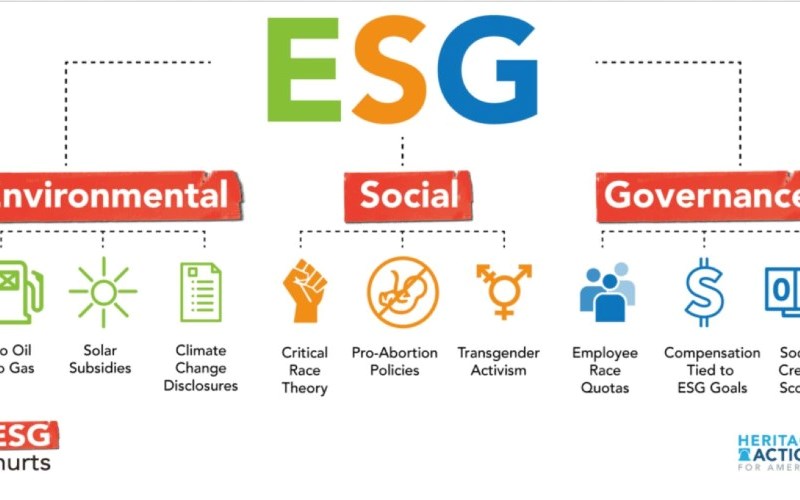Manipulation of the free market by the administration of President Joe Biden has created an environment that pressures corporations to pursue its favored social agendas and puts executives in possible conflict-of-interest situations if they want to earn their top salaries. Even one of America's most visible Christian corporations, Chick-fil-A, has gotten on board.
 "Chick-fil-A is the kind of case that teaches us it's not a hundred percent just financially driven. A lot of this is psychosocial cultural pressure on human beings to submit to the will to apologize rather than the will to actually continue to stand for who we really are," Vivek Ramaswamy said on American Family Radio Thursday.
"Chick-fil-A is the kind of case that teaches us it's not a hundred percent just financially driven. A lot of this is psychosocial cultural pressure on human beings to submit to the will to apologize rather than the will to actually continue to stand for who we really are," Vivek Ramaswamy said on American Family Radio Thursday.
The fact that Chick-fil-A has a Diversity, Equity and Inclusion (DEI) officer made big news this week. The reality is Erick McReynolds has been CFA's vice president of DEI for at least a year and a half, according to his LinkedIn profile. In 2020 his title was executive director of DEI. He's been with the company since 2007.
It's likely McReynolds' position began to churn in the news cycle after Chick-fil-A on May 23 released its report on progress made toward its social responsibility goals in 2022.
In its purest form, DEI aims to promote fair treatment and opportunities for individuals who may have been targets of discrimination in years past. However, application of DEI can often be in conflict with conservative values. The embrace and advancement of LBGTQ ideology would be one example.
Loyal customer base wakes up to woke at CFA
A loyal core of Christian customers may have been unaware that Chick-fil-A CEO Dan Cathy was pursuing DEI initiatives. Most of them know it now – even though, as columnist Suzanne Bowdey contends, they may be reluctant to believe it.

"Either the DEI office is just an empty gesture, and he's pandering to the gays – and that tells me he's not a man of conviction; or the DEI officer is absolutely serious, and it tells me he's woke. Either way I am not going to believe in your character anymore," said Dr. Alex McFarland, a Christian apologist and author.
Chick-fil-A outlines its DEI plans here. In a broader picture, DEI is tied to a company's ESG score. Environmental Social Governance is a framework used to assess an organization's business practices and performance on various social issues.
DEI: The wave of the future in education, too?Chris Woodward (AFN) An attorney says Americans shouldn't be surprised if diversity, equity, and inclusion (DEI) statements at universities become more common in the future. Many U.S. universities have DEI statements, including the University of Texas at Austin where faculty candidates and graduate students are invited to submit a DEI statement that will "ideally address multiple facets of how your values and experiences advance diversity, equity, and inclusion in your work …. Your statement should … reveal your personal commitment to diversity, equity, and inclusion." Wilson Freeman is an attorney with Pacific Legal Foundation, a law firm involved in legal cases fighting DEI statements. He references a high-profile case that the U.S. Supreme Court should be ruling on in the next few weeks. 
"The Supreme Court is about to decide in Students for Fair Admissions the constitutionality of affirmative action in university admissions," he begins. "I think what's likely to happen is the next step universities are going to look at alternatives to race-based discrimination – and one alternative they're going to see is that potentially the DEI statement is a useful way to discriminate against individuals while not making it seem like they're discriminating on the basis of race. "So, I would not be surprised to see DEI statements become even more common after the Supreme Court rules affirmative action to be unconstitutional, which is what I expect to happen this summer." The Supreme Court term typically concludes at the end of June or early July, when the final opinions are delivered. |
If a publicly traded company has a low ESG score, investors may choose to do business with a competitor whose ESG score is higher and more closely aligned with the investor's preferred politics. When it all comes together, the policies of large liberal states like California and New York can effect goods and services in conservative Southern states.
"BlackRock, State Street, Vanguard, and other financial institutions are foisting those ESG scoring metrics as part of executive compensation on behalf of shareholders," Ramaswamy told show host Jenna Ellis.
So why is ESG important to the financial institutions?
"The answer then traces back up to states like California and New York, Canadian provinces and Western European districts and investing their pension funds – government actors saying that they won't let BlackRock or Vanguard manage their money unless they adopt these ESG commitments," Ramaswamy explained.
"So, if you keep pulling the string all the way up the chain, it still leads back to the place you'd expect – governmental political pressure. But they disguise it through multiple chains of private avatars doing their bidding that deceive most of the public into thinking that this is the invisible hand of the free market when, in fact, it's the invisible fist of government lurking behind the scene most of the time."
CEOs have to consider ESG for their top compensation
The ESG emphasis often puts corporate CEOs in position of choosing between their own earning potential and what they might think is best for their company.
 "The stock option grant that they get is expressly tied to ESG scores," Ramaswamy (left) said. "The CEOs, the CFOs, et cetera, are now compensated not just on traditional value-oriented metrics like shareholder return but also on what they call ESG 'factors.' It's part of the CEO's pay, the bonus. These other factors wouldn't be taken into account if their own objective was just to serve their customers and make money."
"The stock option grant that they get is expressly tied to ESG scores," Ramaswamy (left) said. "The CEOs, the CFOs, et cetera, are now compensated not just on traditional value-oriented metrics like shareholder return but also on what they call ESG 'factors.' It's part of the CEO's pay, the bonus. These other factors wouldn't be taken into account if their own objective was just to serve their customers and make money."
Ramaswamy said increased regulations put in place by the Biden administration has made it almost impossible for corporations to ignore ESG even if they disagree with it.
Department of Labor regulations that once required pension fund investments simply advance the profit potential of retirees are now able to consider side issues such as climate change when investing. ESG factors are also being weaved into Securities and Exchange Commission regulations, Ramaswamy added.
The GOP presidential candidate argued that federal regulations need to be rolled back, but said the states play a role in this too.
"Some of this has to be done through the states. There are Republican leaders who are expressly, I think, standing by idly as states like California and New York and other blue states are using their pension fund money to effectively drag everyone else along for the ride.
"We can't stand by and watch that happen passively," he urged. "These are government actors at the state level who are using pension fund money to vote for policies that most Americans actually disagree with; and more importantly, which don't advance the best financial interests of those Americans," Ramaswamy said.
Many Americans have begun to vote with their dollars when corporations start force-feeding an agenda. Bud Light and Target are recent examples with their billions in losses.
But it's near impossible for concerned Americans to boycott every corporation that sacrifices its customer base for an ESG score.
McFarland says it's important for conservatives to strike where they can. "We don't do nothing simply because we can't do everything," he stated.







